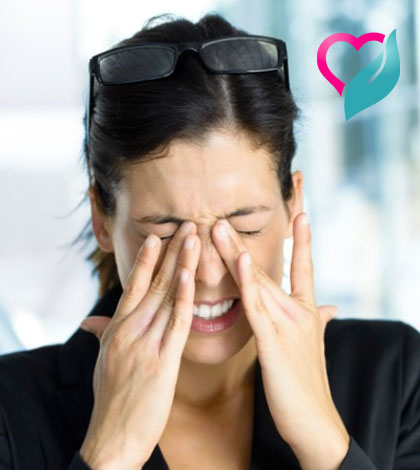Sometimes your eyelid simply twitches. It is rarely uncomfortable, but it can be irritating. It can make you wonder if there is really a problem with the eye. Eyelid twitching is a common eye condition that is characterized by uncontrolled contractions of the eyelid muscles.
It is medically known as myokymia. This condition affects the orbicularis oculi muscle, which is the muscle that allows us to blink or close our eyes. Medical experts consider myokymia to be a harmless condition that is self-limiting in nature. Most of the times, intermittent involuntary movements of the eyelids last for a few minutes. However, these may sometimes last for a few hours or a couple of days.
Causes of Eye Twitching
Stress – While we are all under stress at times, our bodies react in different ways. Eye twitching can be one sign of stress, especially when it is related to vision problems such as eye strain. Reducing the cause of the stress can help make the twitching stop.
Tiredness – A lack of sleep, whether because of stress or some other reason, can trigger eyelid spasms. Catching up on your sleep can help.
Eye strain – Vision-related stress can occur if, for instance, you need glasses or a change of glasses. Your eyes may be working too hard, triggering eyelid twitching. Computer eye strain from overuse of computers, tablets and smartphones is also a very common cause of vision-related stress. If you spend a lot of time on the computer, you also should consider talking to your eye doctor about special computer eyeglasses.
Caffeine and alcohol – Many experts believe that too much caffeine and/or alcohol can trigger eye twitching. If your caffeine (coffee, tea, soda pop, etc.) and/or alcohol intake has increased, cutting back is worth a try.
Dry eyes – More than half of the older population experiences dry eyes, due to aging. Dry eyes also are very common for people who use computers, take certain medications (antihistamines, antidepressants, etc.), wear contact lenses and consume caffeine and/or alcohol.
Allergies – People with eye allergies can have itching, swelling and watery eyes. When eyes are rubbed, this releases histamine into the lid tissues and the tears. This is significant, because some evidence indicates that histamine can cause eyelid twitching. If you experience allergies, it is best to see an opththalmologist.
Vitamin D & B12 deficiency – Vitamin D aids in the absorption of calcium which in turn aids in muscle contraction and relaxation. Lack of vitamin D reduces the absorption of calcium leading to twitching. Lack of vitamin B12 leads to shaky movements as well as spasticity hence eye twitching.
Eyelid inflammation – This condition is referred to as blepharitis. It is caused by bacteria overgrowth, blockage of the eyelid's oil glands as well as allergies. It causes itching, scaling and swelling of the eyelashes base.
Precautions
The affected individual should cut down on the intake of caffeine. It is essential to reduce eye strain. Since working on computers or watching television for long hours can trigger eyelid twitching, it would be best to take breaks. The affected person must get adequate sleep. This will relax the fatigued muscles of the body. Application of warm compresses on the eyes can also prove beneficial.
Instant Remedies
Massage your bottom eyelids in a circular motion using your middle fingers. To prevent irritation or infection, be sure your hands and face are clean first.
Start with hard blinking. Close your eyes as tight as possible. Squeeze them as much as you can and then suddenly open them up unexpectedly wide. Execute this type of blinking until your eyes begin to produce tears. Stop immediately if you experience pain or if the twitching becomes significantly worse.
Blink for a half a minute. Try to do this with adequate speed, and at the same time, make the movements very light. Imagine that your eyelashes are butterfly's wings. The process of blinking is extremely important to your eyes – it relaxes most of the eye muscles, lubricates and cleanses the eyeballs. Stop immediately if you experience pain or if the twitching becomes significantly worse.
See your eye doctor for proper diagnosis and treatment if the twitching affects half your face or your entire eye, causing the lids to clamp shut or you experience frequent episodes of twitching.
If you are experiencing the following symptoms, it would be important to see a doctor.
- If your twitching persists beyond three days.
- When your eyelid closes due to twitching.
- When the spasms involve facial muscles.
- Discharge, redness or swelling occurs.
Occasional eye twitches could be benign, but it is important to get your eyes checked by an ophthalmologist on an yearly basis to rule out any other problems.
Image courtesy: venusbuzz.com , sheknows.com , prevention.com





























